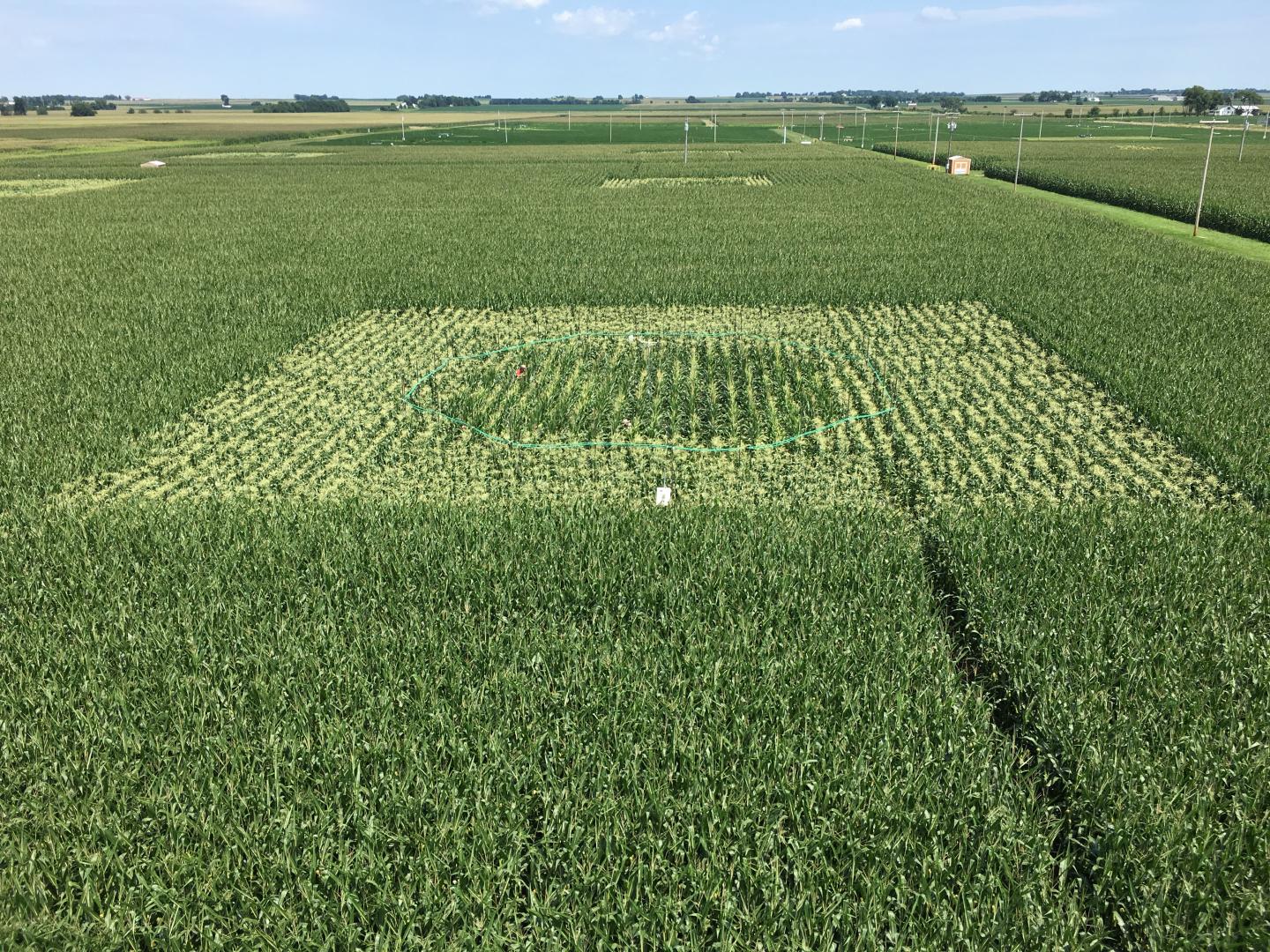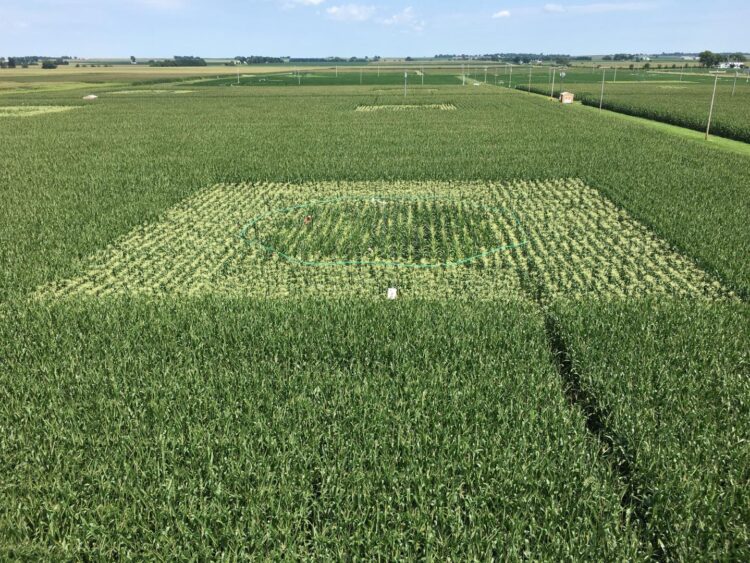
Credit: Ainsworth lab
Although stratospheric ozone protects us by filtering out the sun’s ultraviolet radiation, tropospheric ozone is a harmful pollutant. A new study has shown that ozone in the lower layers of the atmosphere decreases crop yields in maize and changes the types of chemicals that are found inside the leaves.
Ozone is formed when nitrous oxide, released from industries and tail pipes of cars, is broken down by sunlight and chemically reacts to form ozone. Researchers at the University of Illinois Urbana-Champaign have been studying the effects of ozone pollution on crops for over 20 years at a unique facility where crops can be grown under real-world farm field conditions but with increased concentrations of ozone pollution.
“Ozone pollution is higher in the northern hemisphere, and peaks in the warmer, summer months. High concentrations of ozone pollution overlap temporally and spatially with crop growth, so it is important to study how the high ozone concentrations affect crop yields,” said Jessica Wedow, a former PhD student in the Ainsworth lab.
The researchers looked at three types of maize: two inbred lines B73 and Mo17, and the hybrid cross B73 × Mo17. Surprisingly, they found that chronic ozone stress caused a 25% decrease in yield in the hybrid crops while the inbred plants remained unaffected. The hybrid plants also aged faster than the inbred crops.
To understand why B73 × Mo17 was affected, the researchers measured the chemical composition of the leaves. “The inbred plants did not respond to ozone. On the other hand, the hybrid plants produced more α?tocopherol and phytosterols, which help quench reactive oxygen molecules and stabilize the chloroplast membranes,” Wedow said. These results suggest that the since the hybrid maize is more sensitive to ozone exposure, they may be producing more chemicals that deal with the consequences of chronic ozone stress.
“This study provides clues to improve maize tolerance to ozone pollution,” said Lisa Ainsworth (GEGC), the Research Leader of the USDA ARS Global Change and Photosynthesis Research Unit. The group is currently studying whether these responses are consistent across other important grasses, including those used for bioenergy.
###
The paper “Age-dependent increase in a-tocopherol and phytosterols in maize leaves exposed to elevated ozone pollution” was published in Plant Direct and can be found at https:/
Media Contact
Ananya Sen
[email protected]
Original Source
https:/
Related Journal Article
http://dx.





